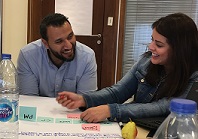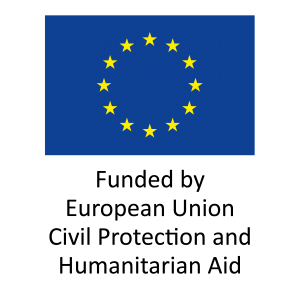Shaping the future: Our strategy for research and innovation in humanitarian response.

Shaping the future: Our strategy for research and innovation in humanitarian response.


In our previous post, we wrote about the PM+ master training in Cairo, Egypt, where nine international humanitarian agencies and two consultants came together to learn, share and discuss the importance of PM+, a trans-diagnostic intervention designed for low-resource settings.
What makes PM+ a scalable intervention that can be used in humanitarian contexts is that it can be delivered by paraprofessionals (high school graduates with no mental health experience), using the principle of task shifting/task sharing for people in communities affected by any kind of adversity (e.g. violence, disasters), not just focusing on a single kind of adversity.
As we move into the second phase of the project, the aforementioned organisations have taken their new knowledge and skills back home and have started to disseminate the training to staff within their organisations and develop implementation plans.
One of the organisations, Action Against Hunger (ACF), started by conducting two trainings; one for headquarters-based staff and one for future program managers and psychologists, who will help to manage and supervise future PM+ helpers at ACF field locations. They built this foundation to enable them to train local community-based organisations throughout Iraq later this year. This specific project will be in collaboration with the Iraq Ministry of Health as part of a larger project to increase access to mental health care by rolling out the mental health gap action programme (mhGAP) intervention guide. ACF also plans to train staff in four countries across sub-Saharan Africa in early 2019: Nigeria, Chad, Cameroon and Niger.
In addition, the International Rescue Committee (IRC) trained their mental health and psychosocial support staff in Jordan who are responsible for programming inside Syria. They plan to train psychologists and Psychosocial Support Workers (PSW) from IRC and partner organisations who work at health facilities and in mobile community teams throughout Southern Syria.
The seven other organizations who attended the training in Cairo have also been busy conducting supervisory and staff trainings throughout the globe while preparing to start providing PM+ sessions in Colombia, Ethiopia, Zimbabwe, Ecuador and the list goes on.
As we move into the second phase of the project and scaling up PM+ becomes a reality, I can’t help but think about the thousands of individuals who will now have access to mental health services to alleviate their symptoms in places where mental health services were previously non-existent or extremely limited.
Author: Ashley Nemiro, Project Consultant


 Please upgrade your browser
Please upgrade your browser
You are seeing this because you are using a browser that is not supported. The Elrha website is built using modern technology and standards. We recommend upgrading your browser with one of the following to properly view our website:
Windows MacPlease note that this is not an exhaustive list of browsers. We also do not intend to recommend a particular manufacturer's browser over another's; only to suggest upgrading to a browser version that is compliant with current standards to give you the best and most secure browsing experience.